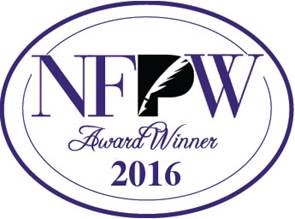10 Writers’ Resolutions You Can Keep
1. Revisit an old piece of writing.
Pull out a project you started but never finished. Look at it with fresh eyes. Why didn’t it work? Sometimes a fresh read, especially if time has passed and you have learned new skills in the interim, can reveal flaws and provide solutions. If you can’t or don’t want to complete the work, determine whether any of its parts are salvageable. Was there a plot point, a character, or a setting you could use in another work?
2. Experiment with another writing form (poetry, short story, nonfiction).
Each form of writing employs specialized skills. If you write novels or short stories, experiment with poetry to expand your appreciation of—and skill with—imagery, rhyme, metaphor, and word choice. Fiction writers can learn by writing nonfiction and nonfiction writers can learn from fiction.
3. Try a new genre.
Have you ever written a mystery? A thriller? A fantasy? Give it a try. You might experiment with a series of short stories, each in a different genre. Even if you don’t decide to pursue writing in that genre, you will gain some new skills and techniques.
4. Educate yourself.
Take a class, go to a workshop, read a book about writing, or attend a conference. Make a point to improve your writing skills, knowledge of grammar, and understanding of the publishing process. Everyone has something to learn.
5. Find a mentor.
Do you know someone whose writing you admire or who has had success with publishing? Approach the person respectfully with a short question or two about his or her writing (not yours). Try to build an ongoing conversation about writing that leads to opportunities to gain wisdom and insights.
6. Improve a weakness.
Do you see a pattern to the feedback you get on your writing? Well do something about it. Focus on the mechanical (grammar and word choice), structure, voice, style, and characterization problems that keep creeping into your work and resolve to eliminate them.
7. Build on a strength.
What do people like about your writing? Is it your use of poetic language, ability to evoke the senses, or skill with creating engaging characters? Find ways to showcase that strength by choosing writing forms and genres that put it to its best advantage.
8. Read more.
One of the best ways to become a better writer is to become a better reader. Make time to read. Read good writing. Read books about writing. Read the kind of writing you want to write. Read critically to determine why a piece works (or doesn’t). Read, read, read.
9. Don’t be so hard on yourself.
No writer is perfect. If you wait for perfect writing you will never publish anything. Catch your inner critic and beat him into submission. Self-editing—OK. Self-flagellation—not OK.
10. Take a risk.
Make this the year you step out of your comfort zone. Submit a piece of writing to a publication, enter a contest, take advantage of a critique opportunity at a conference. Put yourself out there. You will never know what you’re capable of if you don’t try.










